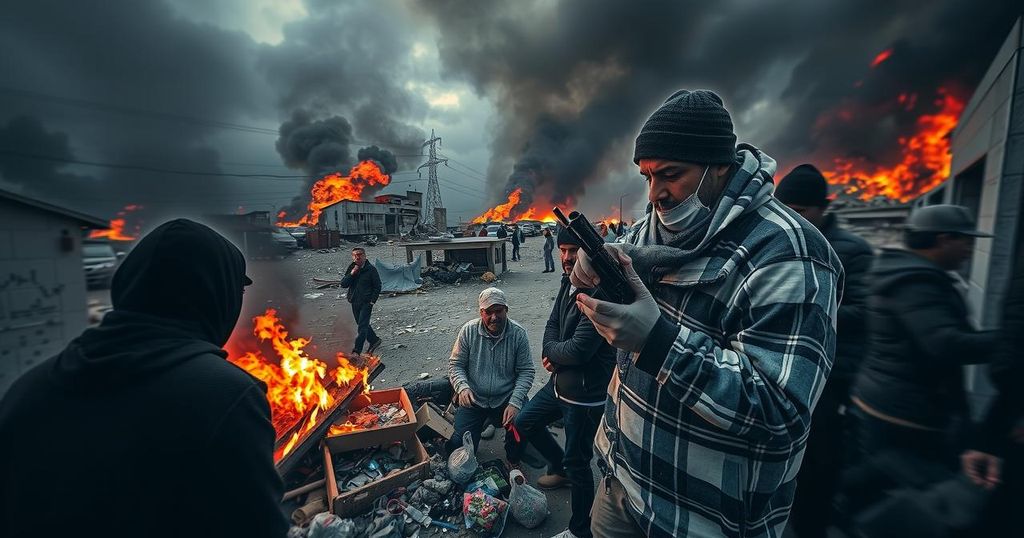The conflict in Gaza has intensified for 379 days, with ongoing Israeli airstrikes leading to high civilian casualties, especially in Jabalia. Meanwhile, military actions in Lebanon against Hezbollah are escalating. International leaders are advocating for a ceasefire and the delivery of humanitarian aid amid pressing crises in both territories.
The escalating conflict in Gaza has now reached its 379th day, marked by relentless Israeli assaults and an ongoing siege in the northern regions of the territory. Recent airstrikes, particularly in the Jabalia refugee camp, have led to a significant loss of civilian life, with reports indicating a rising number of casualties, including women and children. The Israeli military has intensified its operations in Jabalia, deploying additional forces which suggest a possible uptick in military engagement. On a recent occasion, the Gaza Ministry of Health reported three massacres attributed to Israeli forces, resulting in substantial casualties within a short timeframe. Moreover, the communications infrastructure in northern Gaza has been heavily compromised, leading Hamas to accuse Israel of seeking to isolate the Palestinian population and obscure its actions. Within Jabalia, many Palestinians remain trapped in their homes, defying evacuation orders under duress. The situation is further complicated by the assassination of Hamas leader Yahya Sinwar, stirring international calls for a ceasefire, among them, prominent leaders from the United States, France, Germany, and the United Kingdom emphasizing the necessity to halt hostilities in Gaza and ensure the delivery of humanitarian aid. On the humanitarian front, the UN’s food rights investigator highlighted ongoing issues of deprivation, despite the delivery of substantial aid to the region. Military engagements continue, with various factions, including the Al-Quds Brigades and the Qassam Brigades, reporting successful strikes against Israeli military assets. Parallel to the situation in Gaza, tensions in Lebanon remain high, with the Israeli military intercepting drones and continuing strikes, particularly against Hezbollah targets. Lebanese leadership has reaffirmed its commitment to ceasefire and adherence to international resolutions, voicing strong opposition to Israeli threats against UN peacekeeping forces. As the conflict unfolds, the humanitarian, political, and military dimensions continue to interweave, leading to grave consequences for civilians caught in the crossfire, amidst a global call for a ceasefire and renewed peace efforts.
The context of this report revolves around the ongoing conflict in Gaza, which has lasted for nearly a year, following a resurgence in hostilities that began on October 7, 2023. The violence has persisted through various forms, including airstrikes, ground operations, and military engagements involving multiple factions. The conflict has drawn international attention, with reports of massive civilian casualties and significant humanitarian crises. Efforts for ceasefire have been voiced by world leaders, with consistent calls for humanitarian aid to reach affected civilians caught in the violence. Concurrently, tensions in Lebanon further aggravate the regional instability, as Israeli forces engage with Hezbollah and other groups.
In summary, the situation in both Gaza and Lebanon demonstrates escalating military actions, significant civilian casualties, and international calls for a ceasefire. The humanitarian crisis illustrates the dire need for aid and protection for vulnerable populations within the conflict zones. As international leaders emphasize the importance of halting hostilities and ensuring humanitarian assistance, the multifaceted dimensions of the conflict underline the urgency for a diplomatic resolution to restore peace and stability in the region.
Original Source: www.dailynewsegypt.com







